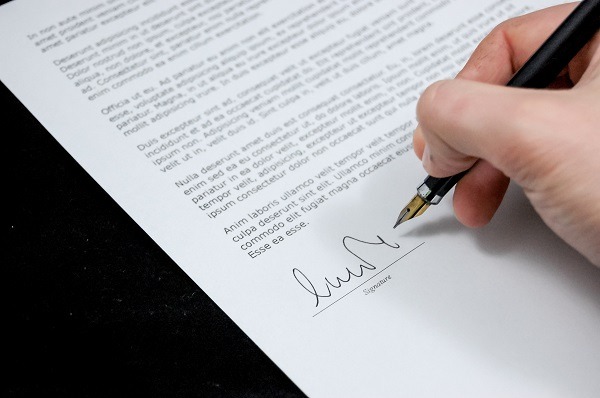A cover letter introduces you and your novel to potential publishers. This letter is your first point of contact between you and a publisher, therefore, it is crucial that aspiring authors know how to write a decent cover letter.
Here are three common questions, answered for writers looking to pave a successful path into the world of publishing with a cover letter that leaves an impression…

What do I need?
1. An ‘elevator pitch’ and hook
An ‘elevator pitch’ is a brief and punchy summary of your novel that could be told to someone important between floors of a short elevator ride. Condense the core ideas of your novel in a dynamic and enthusiastic couple of sentences.
Remember that your cover letter should be no longer than a page, so this section can only take a up a paragraph or two. Show them why it’s worth reading and be sure to include a ‘hook’ – something that drags your reader into the story, and has them dying to know what happens next.
2. A target audience
Outline your target audience to publishers and demonstrate an alignment to their publishing vision. A good way to start is by looking at previous novels they have published and whether these books fall in the same category as yours, and share a target audience.
Remember to be specific; publishers need more information than ‘Adult’. Include your audience’s age group, interests etc. if applicable.
3. Novel titles comparable to yours
Give two titles comparable to your novel (even better if they’re published by the publisher you’re reaching out to). This is a great way to establish direct relevance and relation to potential publishers.
More than that, it gives them an idea of where your novel will sit in the marketplace and how it will work with their existing list.

4. A word count
This is a simple and necessary inclusion to let publishers know how long your novel is.
5. A killer author bio
Be interesting, be readable and draw publishers in with who you are and what you intend to do with your work.
Here is also the place to list existing publishing credentials, and relevant education such as writing courses or degrees. You want to be able to get publishers to see that you are a capable, focused and passionate writer.
6. Contact details
Give yourself the opportunity to be contacted if the publishers decide to get in touch for further questions or discussions. Include your phone number, address and most importantly, your email address.

How do I put it together?
Put the above elements together in an easy-to-read, simple form. Keep sentences short, purposeful and in an active voice. The desired length of your letter should no longer than a page. Opt for 12pt standard font such as Times New Roman, and 1.5 spacing.
Many new authors make the mistake of attempting to detail their background, life achievements and a lengthy breakdown of their novel. Long, unnecessary paragraphs will irritate the editor, and an irritated submissions editor is not someone you want reading your life’s work and deciding its future.
In addition to being concise, remember to keep it error-free. Creatively written content may help you stand out, but keep in mind that your letter is still a business proposal.
It also goes without saying that a successful pitch leaves no room for error, so before you click send, proofread it again and again. Better still, have other writer friends review it and provide you with feedback.

Do I include my manuscript?
Always follow the publisher’s submission guidelines. These guidelines are usually accessible on publisher’s website. The most common request is to include the first three chapters. In addition, you might also be asked for a synopsis (usually no longer than 300 words).
We cannot stress enough the importance of adhering to the guidelines. This shows that you care about the publisher’s work as well as yours.
Some other useful tips
- Address your cover letter by name. Avoid clichés such as ‘Dear sir/madam’ or ‘To whom it may concern’. It is more genuine and respectful.
- Use more formal language throughout the letter.
- Have a logical and readable structure.
- Thank the publisher for their time.
- Sign off gracefully – e.g. ‘Yours sincerely’ – before your name.
With these tips, you’re good to go!
6 responses to “How To Write A Killer Cover Letter to Publishers”
Hello
A cover letter introduces you and your novel to potential publishers. This letter is your first point of contact between you and a publisher, therefore, it is crucial that aspiring authors know how – “to” – write a decent cover letter.
Could you please correct the first sentence on this web page? I was told once that my emails, no matter how appealing, would be rejected because of a spelling mistake or a sentence that was not constructed correctly.
I can not be a member of AWG as I do not have any credits for my drama script writing. I can not gain a credit until my work is accepted. How do I attract Australian publishers with Australian/British drama scripts without credits?
Hi Carmel,
Thanks for pointing that out – things do slip through the cracks sometimes, but the sentence is fixed now!
As for your submissions: generally, book publishers won’t accept unsolicited submissions of play scripts or screenplays, no matter whether you’re a member of AWG or not. We’d recommend looking into more specific submission opportunities, such as Australian Plays (https://australianplays.org/about/submissions), and also visiting sites like Playwriting Australia (http://www.pwa.org.au) for more information and opportunities.
You might also like to purchase a subscription to the Australian Writer’s Marketplace (https://www.awmonline.com.au), which has a comprehensive directory that includes opportunities for plays/theatre and screenplays.
Best of luck with your writing.
-Claire
Is it possible to have an example of a submission letter? Even if something general. Cheers!
Hi Bec,
Here’s a site with a list of examples of successful cover/query letters from different genres: http://www.adweek.com/galleycat/successful-query-letters-for-literary-agents/63594
Hope this helps!
-Claire
Thanks, Claire.
Your third point highlights how important (and time-consuming) advance research is. A writer might have to read several novels to find two comparable titles.
Hi Kathy,
Glad you enjoyed Natalie’s post! Definitely agree that research can take up a lot of a writer’s time – definitely worth it, though, if it improves your cover letter in the end!
-Claire